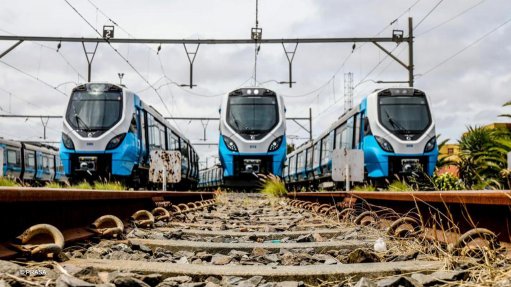
The recent Service Level Plan (SLP) signed between the Passenger Rail Agency of South Africa (PRASA) and the City of Cape Town is not a devolution agreement, warns the rail agency.
It says the agreement flows from Section 11 of the National Land Transportation Act, which entrusts municipalities with the function of preparing transport plans for the area under their control, ensuring compliance to these plans, while also enabling service level planning for passenger rail in consultation with PRASA.
“It is crucial to emphasise that the SLP is designed to enhance cooperation between [Cape Town] and PRASA”, and that it is not an agreement about the devolution of rail services to the city, with these services remaining “the exclusive prerogative of the Department of Transport”, notes the agency.
The arrangement is the first of its kind between PRASA and a municipality.
PRASA says the SLP represents “a partnership designed to harness cooperative governance and effectively implement service delivery obligations under national and local legislative frameworks”.
The agency notes that it is set to also sign SLPs with the other metros in the country in which it operates.
The focus areas in the SLP include property management, improved security, and infrastructure development.
It allows for Cape Town and PRASA to work together to prevent the illegal occupation of PRASA properties, deploy joint law enforcement and security personnel, and to identify potential resettlement areas for illegally occupied areas.
The partnership also prioritises public safety along rail reserves, including the construction of pedestrian and vehicle bridges; and the management of level crossings to minimise safety risks.
A key component of the Cape Town–PRASA SLP is integrated transport planning, which includes developing public transport facilities, incorporating commuter rail services into the city’s Comprehensive Integrated Transport Plan, and creating transit-oriented development policies around rail station precincts.
PRASA says it will contribute by providing operational and performance data to Cape Town; continuing its process of infrastructure rebuilding and maintenance; ensuring that its rail operations comply with safety regulations; while also maintaining its infrastructure according to corporate plans and budgets.
Cape Town Mayor Geordin Hill-Lewis said earlier this month that the SLP laid the foundation for future passenger rail devolution to the city.
“Taking charge of Metrorail is especially important for lower-income households, who would save an estimated R932-million a year if trains were working as they should.
“We have a vision to massively scale up passenger numbers, new train sets, new routes, and to upgrade stations and the surrounding areas with affordable housing over the next two decades.”
![]()